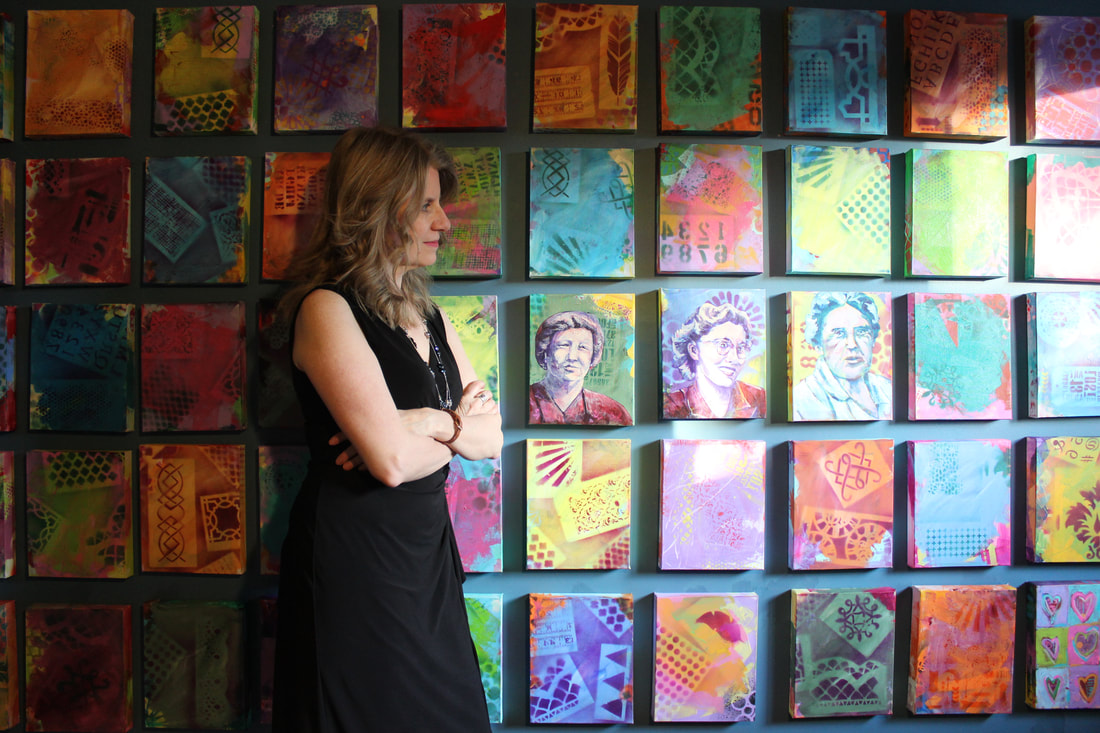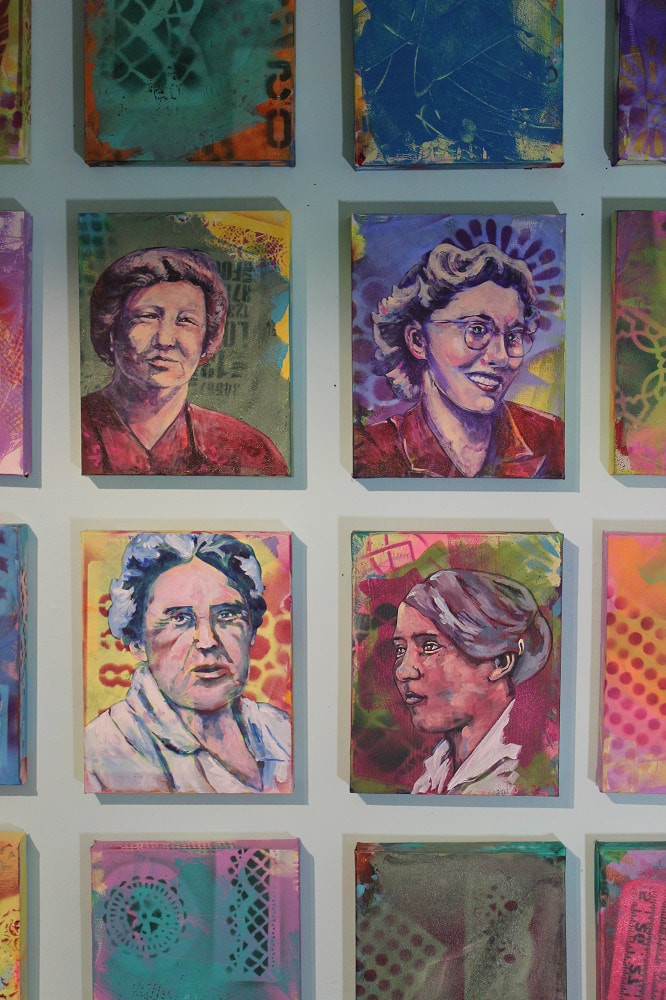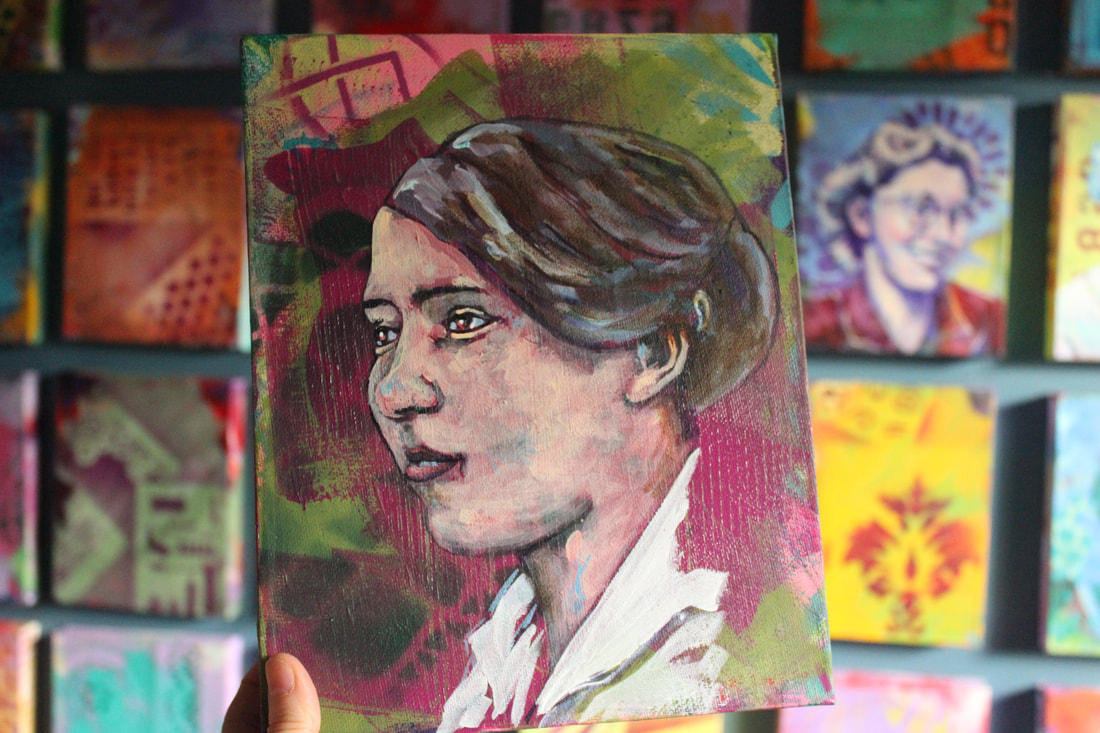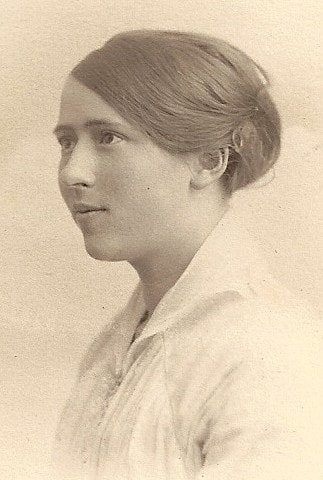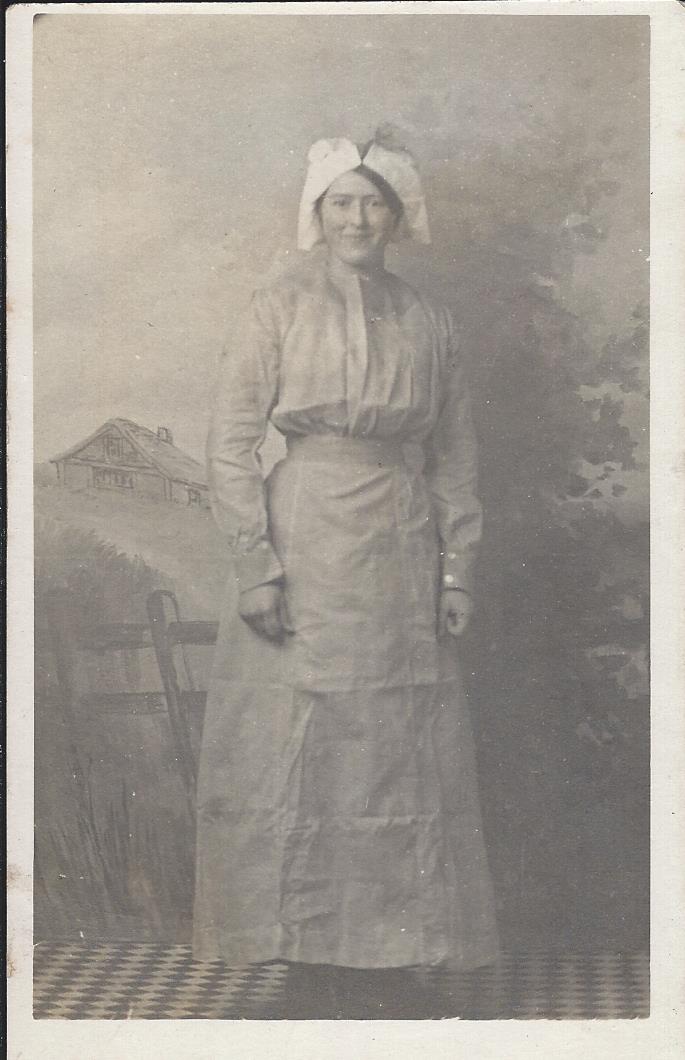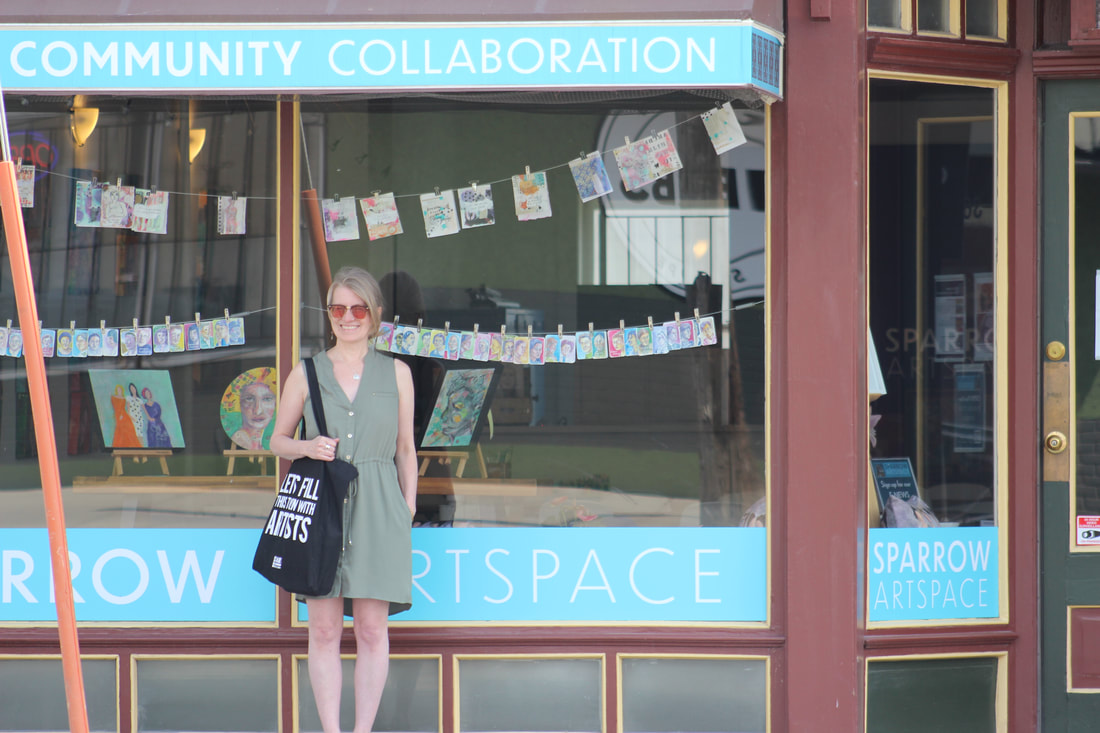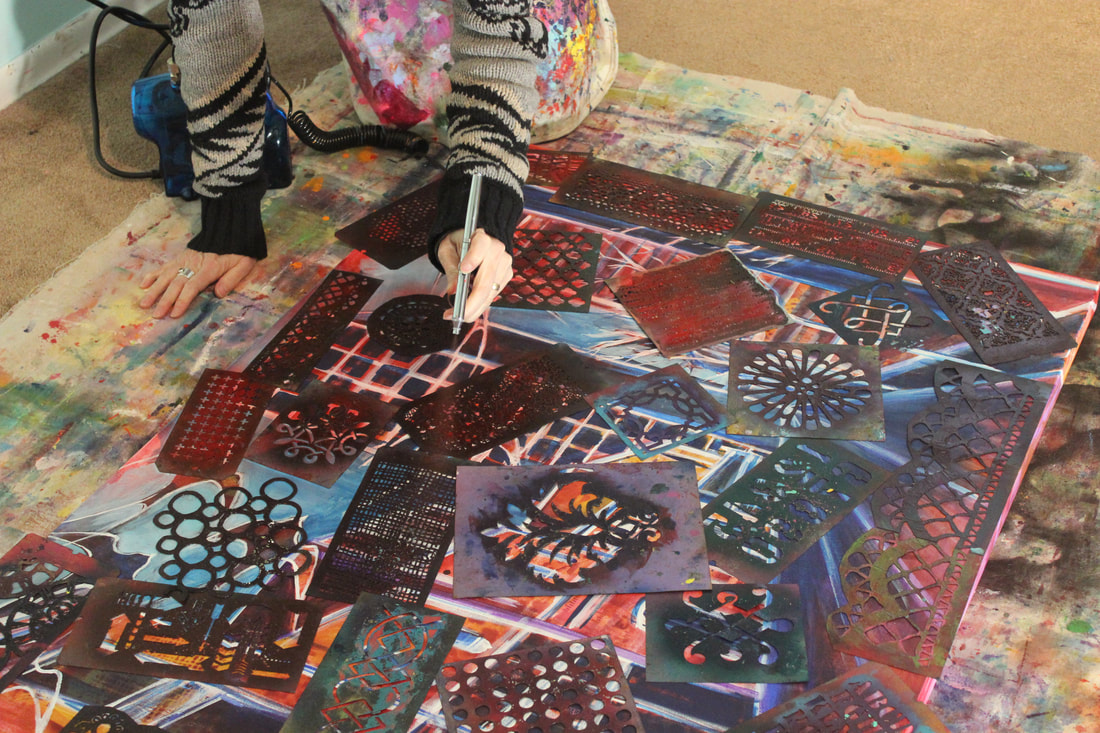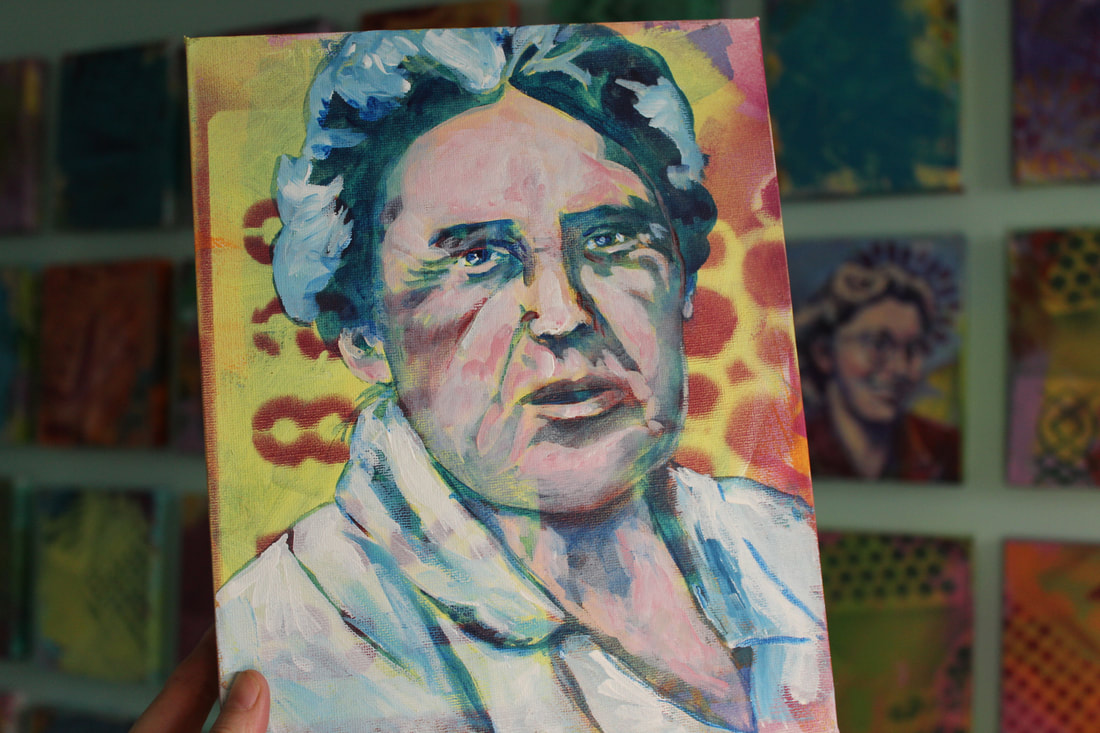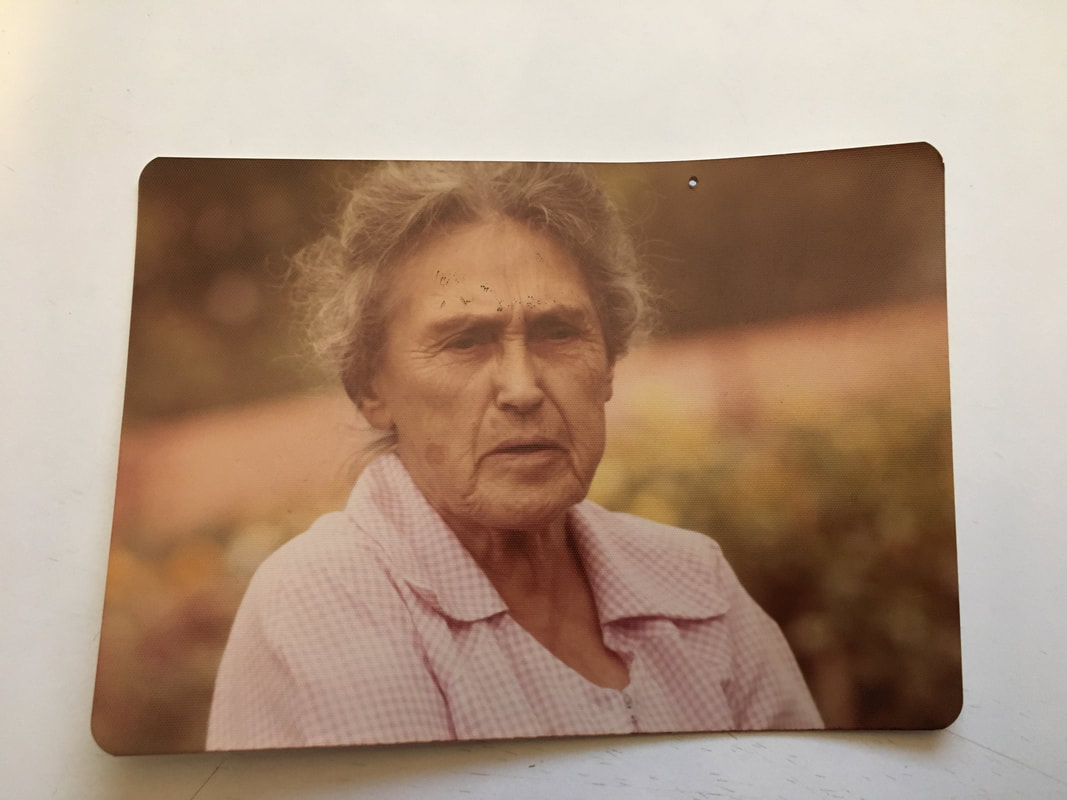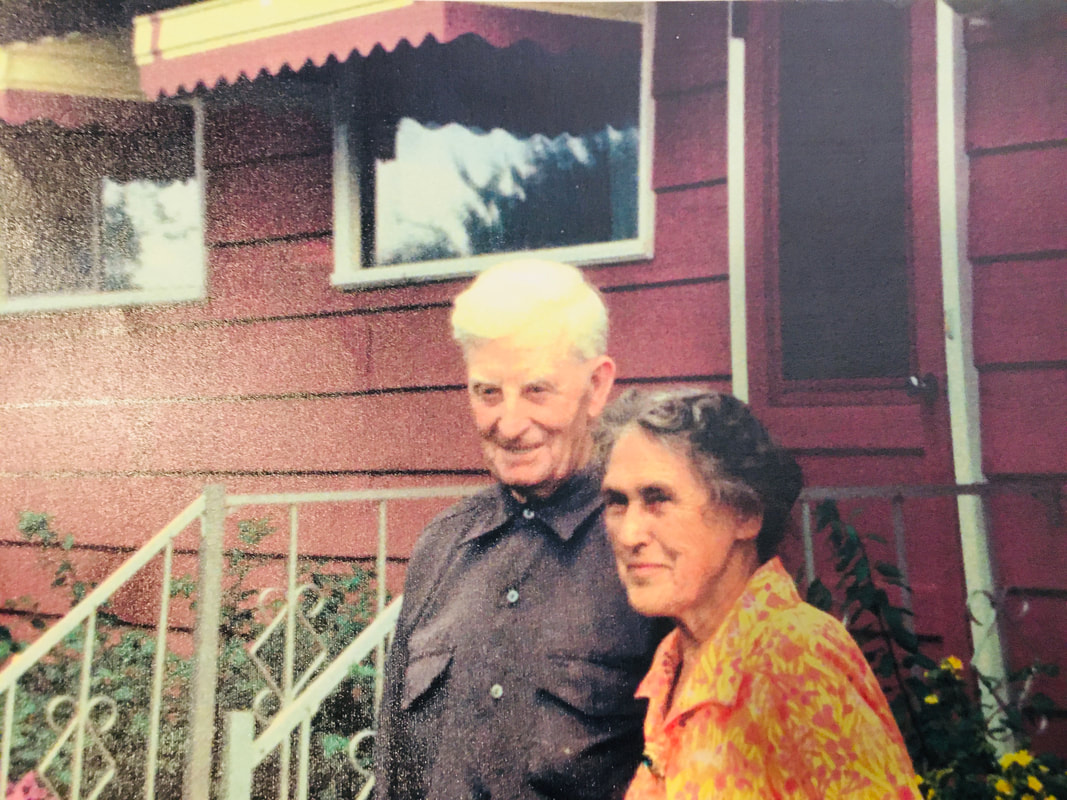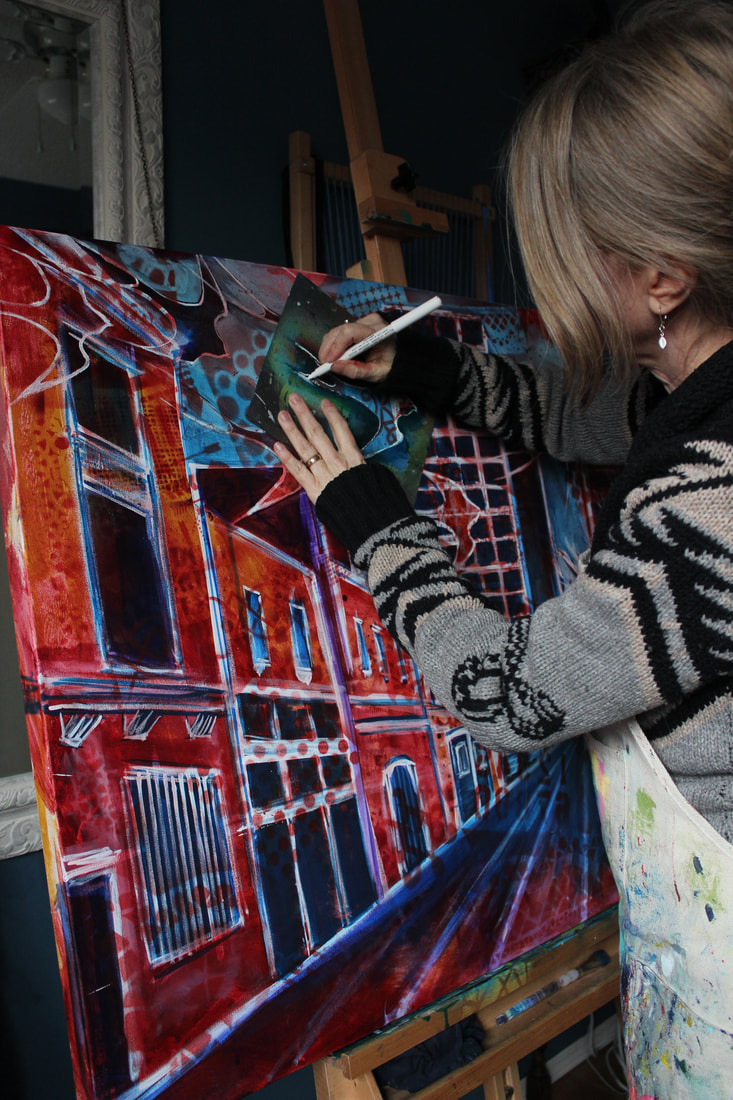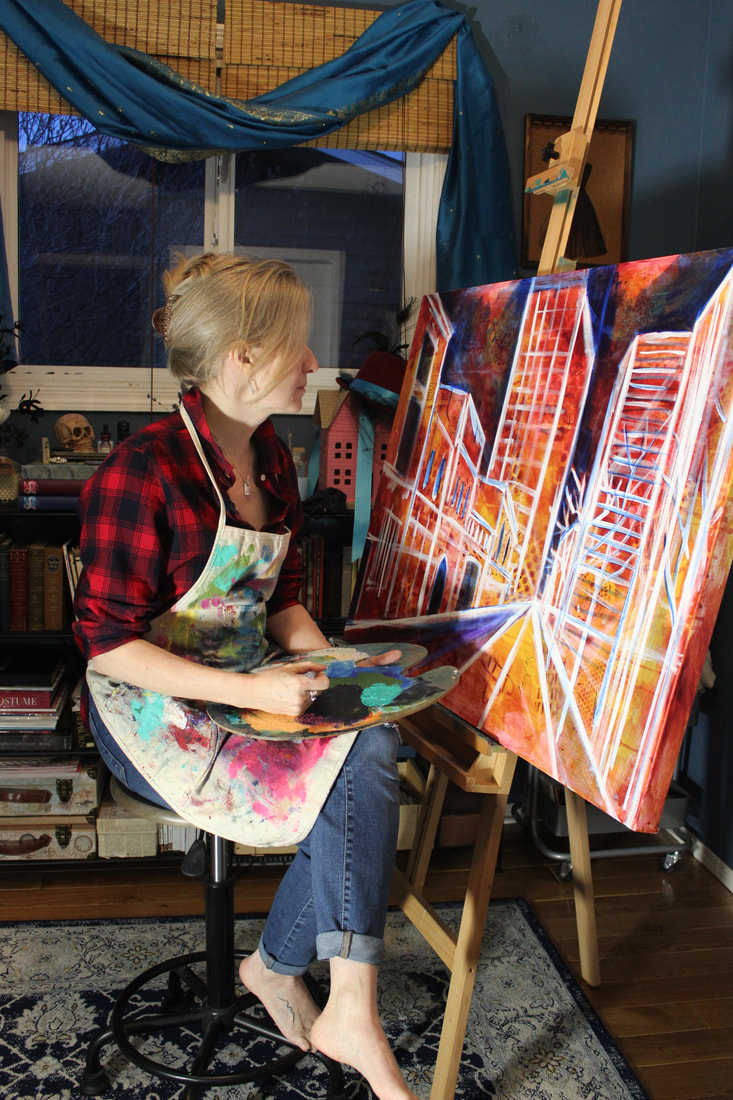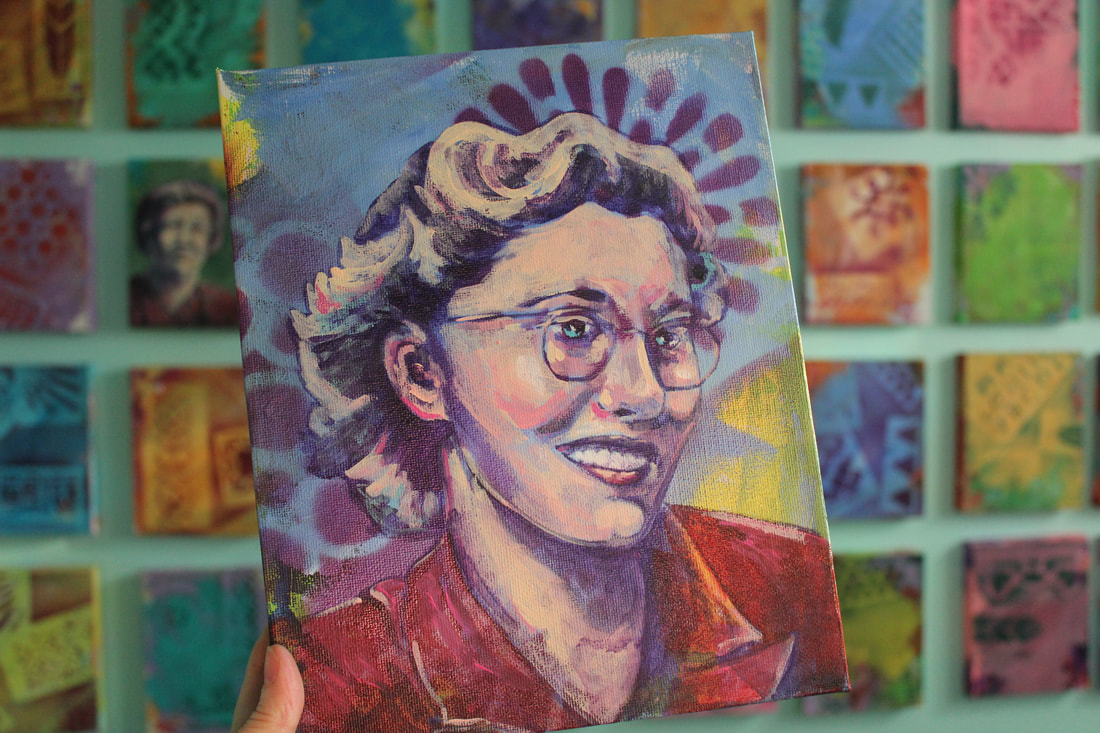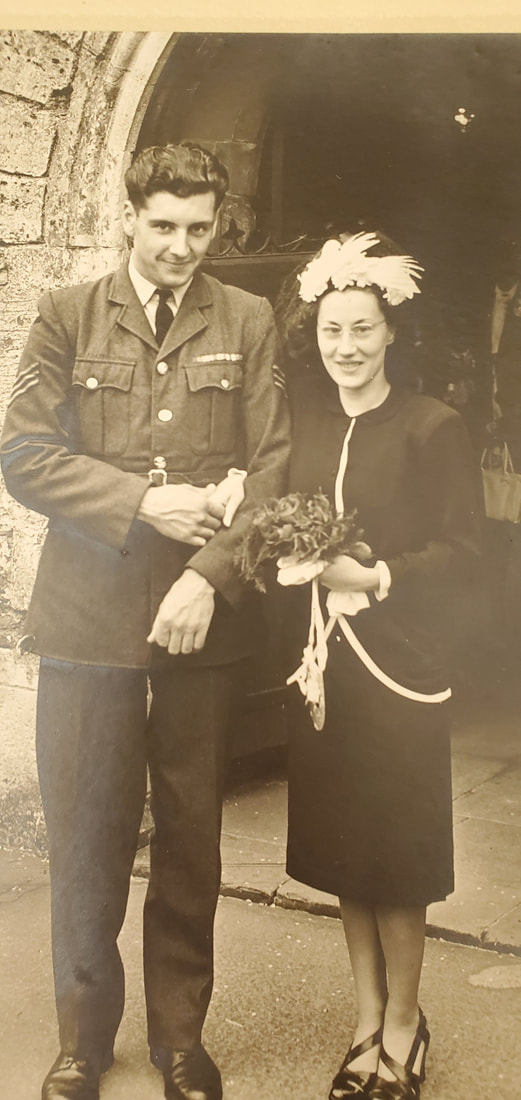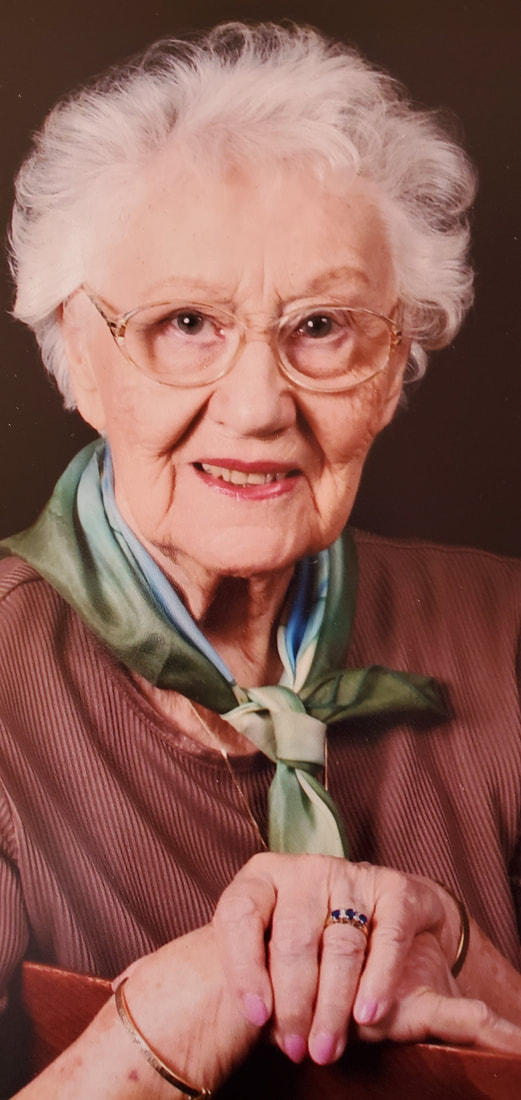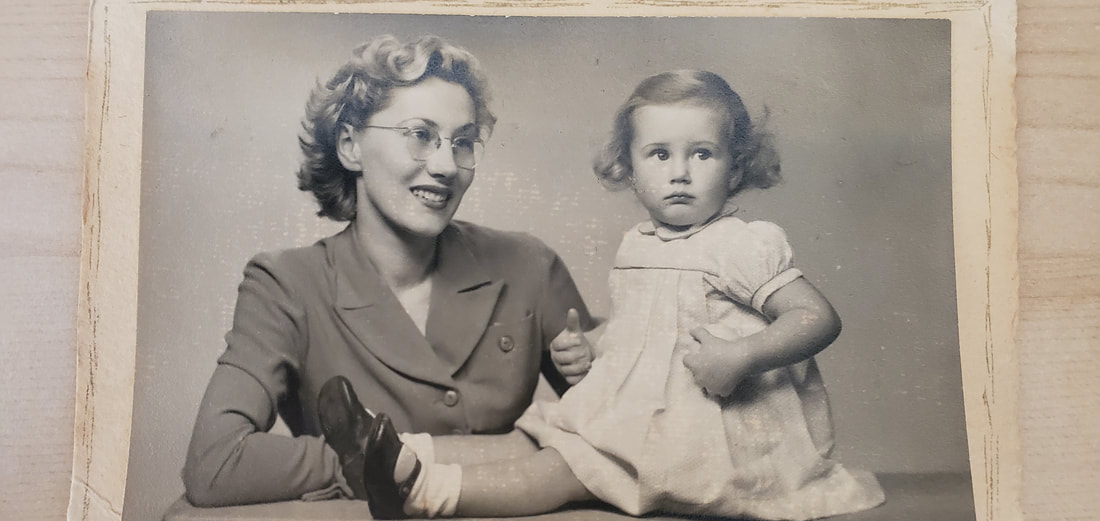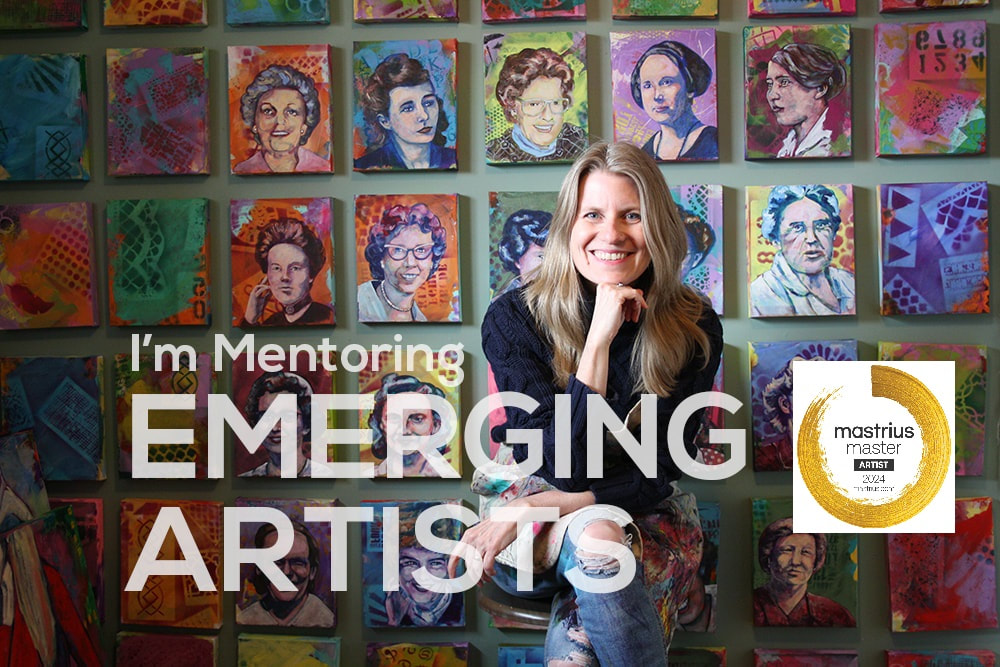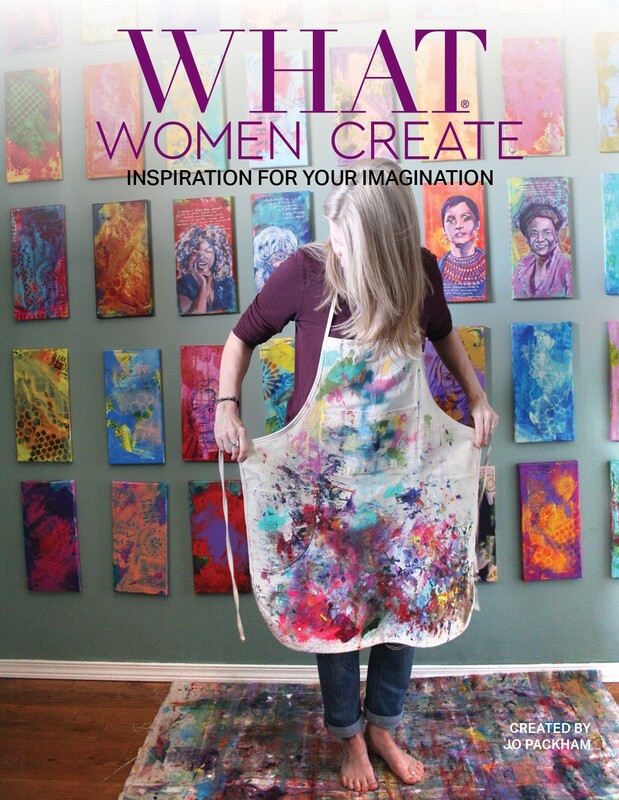|
Lately I've spent quite a bit of time in the city which has really been inspiring me so, besides my Grandmothers project, I have been working on other pieces as well. Visiting my daughter at university means we have been spending time in areas that I love and haven't been to in some time which means I've gathered several interesting photographs & sketches. Initially I wasn't certain how I would utilize any of these images but I've recently completed a painting of Calgary's Stephen Avenue though have decided to set it aside for awhile to be sure that I'm happy with it. It's been interesting as my only experience with a city landscape was last year's painting of the Calgary Tower. I found that after living with it for a few months I needed to make a few changes, which ended up making me love it. This included incorporating more acrylic ink and my airbrush which helped the painting by increasing contrast while adding a bit more pattern while at the same time making it more cohesive through layers of glazes. Anyway, I'm quite pleased with the work as I haven't really visited perspective since college...and challenge are always good.
I have completed the first month of this year-long project and I am absolutely loving it! From the shortest stories to the longest, I am so honoured to listen to them, to learn about these women and how they affected the people near and dear to them. Every single time I am amazed by the challenges that each woman before us has overcome in order to raise families, begin careers, and settle in new places. I feel so privileged that I have been entrusted with these lovely photographs and memories.
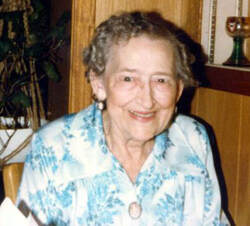 Ethel Maud (Parsonage) Kellar was from a family in Ilford, Essex, part of the emerging middle class. Her mother's family originated in Kent, the oldest part of England; they were Bridgers. (As people emigrated to the cities, this family became part of the massive working class à la Oliver Twist -- which I learned from my research and which my grandmother never ever shared.) She was well-educated for girls of her era and the first photo shows her working in a butcher shop. Although her father worked for the railroad, others in her extended family on the Bridger side were butchers and that's how they attained their wealth. Several were of German origin and Anglicized their surnames especially during WWI. It was a musical family; her mother played piano and her father the violin. it was also a very chatty, story-telling kind of family which is where I inherited this defect. Ethel met my grandfather, George Frederick Kellar, when she was 20 and singing (She had a beautiful voice and sang in her church choir into her 80s.) for the troops in London. My grandfather was on a leave due to injuries sustained at the Somme. He was with the Canadian Expeditionary Force, lying about his age to sign up. He was born in what is now Actinolite, Ontario. So, they married on October 3rd, 1917 in Ilford (greater London) and left for Canada soon after. She was a few weeks shy of her 21st birthday and George had turned 21 in July. My grandmother told me she barely knew my grandfather when she married him. She just wanted to get out of London and away from the zeppelins flying over the city. Her mother wouldn't speak to her for years afterwards as she accused Ethel of "breaking up the family." After she left for Canada, a sister and two brothers emigrated to Australia. The settled in Kingston, Ontario where my grandfather worked in a furniture store. They lived on Alfred Street, a couple of blocks up from where I later lived as a university student. (Their house is still there.) Their firstborn, a boy, died at 18 months of pneumonia. My grandfather's nerves were so bad (probably PTSD) his doctor suggested he should try farming, so they subsequently moved east to a farm at Odessa, Ontario. Neither of them had any experience and my grandmother told me George once bought an old nag by mistake; my grandmother said at least she knew how to tell a horse's age by its teeth! She also told me she used to go up on a hill and cry every afternoon as she was surrounded by uneducated, ignorant Canadian farm women. They had a daughter there; twin boys did not survive and were buried on the farm. They lost everything in a fire (including my grandmother's wedding ring), my grandmother throwing their daughter down to my grandfather from a second story window. Next, they bought a farm at Ameliasburgh on the Bay of Quinte (in Lake Ontario) in Prince Edward County across from Trenton. This was a beautiful place; the house is still there although much changed -- the farm having been divided up and sold for estates a number of years ago now. Two more girls and a boy were born. In March 1939, my grandfather died after falling through the ice in Lake Ontario; he was returning from Trenton with a pound of butter my grandmother had requested. People on shore saw him go under but rescue efforts were slower then and by the time they got to him, he'd gone under. I have the newspaper article which my grandmother saved. Ethel had to sell the farm although the government kept it in trust until each of her children attained the age of maturity, at 21. They all declined to take it on. My grandmother kept the sales bill for all the farm equipment. My mother and I wept when we came across that in her things a few years ago. My grandmother had to move into town -- Belleville -- where she worked four jobs to raise her children. She was hospitalized for a nervous breakdown soon after that move and their next-door-neighbour cared for the children. They were poor, living in rental homes which my grandmother would spend several days cleaning before she would permit her children to enter the premises. However, Ethel was proud and always sent the turkeys back to the church at Christmas and Thanksgiving, saying they were fine. She was trained in first aid and active with St. John's Ambulance as well as the Order of the Eastern Star, a Protestant women's organisation. She was also a monarchist and active politically as you might expect, and, although very tolerant and progressive for her generation, you always knew the British were best. My grandmother was a talented seamstress (She made my mother's grad and wedding gowns) and did beautiful knitting and crocheting. She could mend anything. She attended the Anglican Church until she became too frail. She had a large Bible and a complete record collection of famous operas. Despite such a hard life, she had a great sense of humour and loved to laugh. (Her family had bought jewellery during the war when currency fell and had given her this huge emerald in the ugliest setting imaginable. She wore it all the time and laughed because people just assumed it was junk jewellery. And she never sold it even though it could have made things a lot easier for her.) She lived in an apartment in her eldest daughter's home for many years and cared for her two grandchildren while her daughter taught at the Ontario School for the Deaf in Belleville. Her two other daughters became a nurse and a secretary/bookkeeper. She had scrimped and saved so her only son could go on to post-secondary school, but he dropped out of high school in grade 11 and went to work for Alcan Steel in Kingston (This was when Ontario was booming in the manufacturing sector during the 1940s-1960s.). She used all those savings to travel to England and Australia to visit her family by ocean liner before air travel replaced it. ~ Catherine Buchanan Awhile ago I presented an artist's talk at the Calgary Public Library on 'Inspiration & Process'. Since I began my first 52 WEEKS project about 8 years ago, I found that beginning something at the start of a new year helped to keep me focused and so I typically begin considering what I might paint for the following year probably in summer. Because I always sketch and keep notes in small moleskine sketchbooks, I find that the ideas usually come to me quite organically. I begin to look through what I've written and drawn to see what has captured my attention.
For example, before beginning my 'Nasty Women' project, I began creating small portraits for practice (practice is where a lot of my inspiration comes). I hadn't really focused on portraiture since college (which was a long time ago), plus after hearing so much about the political climate in North America and inaugural Women's March in Washington, I kept feeling like I needed to do something as a woman and as the mother of daughters. There were so many ideas travelling around in my head:
This was probably the most challenging project I have ever embarked on but also the most rewarding. The exhibit opening was held at Inglewood Fine Arts in Calgary and so many of the women and their friends and family were able to attend. It was heart warming. Many years ago when I began exhibiting professionally, I was told that in order to be recognized as a professional artist I would have to give up everything outside of painting...no other work. But I have experienced the opposite through my career. Whenever I am working outside of painting, I have been offered so many more opportunities to exhibit as well as sell my work. This doesn't only apply to a paid position but also to volunteer positions. And the other thing I've noticed throughout the years is that whenever I focus more on smaller works, I may sell many more paintings but my income is lower in spite of the fact that the expenses don't change. Two years ago 3/4 of my paintings sold versus 1/3 last year and last year's income was greater. It doesn't mean that the work isn't as important, in fact, I felt that the body of work I created two years ago (the 'Nasty Woman' project) was a definite career highlight for me. It actually ended up receiving much more media recognition from the established and respected art community. It is rare when the two worlds collide, with a body of larger work receiving that kind of recognition as well as sales, though it did when I first created the 'Sacred Vessel' canoe series that combined nature and graffiti. I think what I am trying to say is that, regardless of recognition or sales, none of the work that I do matters more or less, and I don't create it for any other reason than the fact that it just needs to be made by me. I feel very fortunate that I get to do this.
I was privileged to be included in the recent edition of the Calgary Guardian...
to read the article please visit their website here. This is my grandma Douglas my dad’s mom. She was a settler and came to Alberta in 1905. She was a very strong woman she lost her first husband and married another to keep her land in Veteran, Alberta. they both lived into their 90’s and loved each other very much.
~ Connie Pike I've often discussed the challenges I face when I paint...like struggling with adding too much or not enough...and sometimes I wonder why I enjoy it so very much. Even though it does cause me some anguish, I don't think that there is anything else that I do that keeps me in the moment quite like painting does. Regardless of whether I'm happy with the work I'm creating or happy with the process at the time, I'm still so focused on what I'm doing, paying close attention to them marks and colours I use as I use them, stepping back regularly to see what's working and what isn't. It's a refreshing feeling...that feeling of zen. No worries about the past or the future, just being totally present. That's what keeps me coming back. In fact, whenever I stay away from painting too long (which can mean as little as a day or two) I become quite anxious. So, in spite of the trepidation I feel whenever I'm trying a new layer, it's totally worth it. Plus, I do know from experience that the layers are what adds interest to the finished piece. Always.
This year I have decided to really focus in two areas...one being 'The Grandmothers' project, and the other is to expand my skills a bit by focusing on cityscapes since I've been spending to much of my time in Calgary with my youngest living at university. It's been years since I spent so much time in the city and it's definitely more fun with adults rather than a young children. It's been quite awhile since I worked in perspective like this, utilizing hard edges without being too stiff as I do tend to prefer a bit of an organic feel to my work. Besides painting, I am also continuing my education which I'm really enjoying and I would really like to take in more art exhibits this year. So we'll see how this year unfolds. I'm very excited for it.
My Mum was born in England on August 25th, 1925 in the village of Yate in Gloucestershire. She was the only child of Walter and Nora Hewett who owned and ran a grocery shop in Yate. She had no brothers or sisters, but had a bevy of cousins who made up for that. She survived the second world war and told me recently about seeing German bombers fly over the village to bomb an air plane parts factory at the end of their garden. The German pilot in one of these planes waved to Mum and to my grandmother as he flew in to drop his bombs. These bombs killed a number of people who worked in the factory and blew out the ear drums of a neighbour. Mum says that, when the bombers flew over, she; my grandmother, Nora; Mum’s grandmother, Harriet; and Laddie the Golden Retriever; all hid under the stairs, or under the big, wooden dining room table. The big windows of the grocery shop were regularly blown out by the blasts and they had to be replace with plywood. Mum met my Dad in 1946. He really was tall, dark and handsome and he looked very smart in his RAF uniform. She says she doesn’t know how she managed to catch his attention but that he was the love of her life. I know he loved her too for her spirit, her sense of fun, her excellent cooking, and her classiness. Mum says that she has always been lucky. She had parents who loved and cared for her; a husband who did the same; and me, her only child, who does it now.
Mum and Dad moved from place to place with the RAF and had many adventures and much fun. This included five years in Germany with lots of trips to the Netherlands, Belgium, Italy, Switzerland and Austria. There were many activities and parties in the Officers Mess where itinerant military folk developed their own sense of community. When Dad retired from the Air Force, they moved to Ontario, where two of Dad’s sisters had lived since the late 1940’s. Dad in particular had itchy feet . Mum and Dad travelled in Canada and the USA, back to England for a couple of years and finally ended up here in Calgary with me and my three kids, her grandchildren. Mum’s grandchildren have given her seven great grand-daughters and two of these have given her two great great grand-children. Five generations of us, not bad for an only child. Mum is 94 now and her short-term memory is spotty at best. Her long-term memory is awe inspiring though and she regales me with many stories of her extended family, where she grew up, the people she knew, the war, rationing and going to dances with my Dad. She is a lovely, cheerful woman who loves her family. She is the best type of grandmother, she loves unconditionally. ~ Caroline Fairbrother |
|
